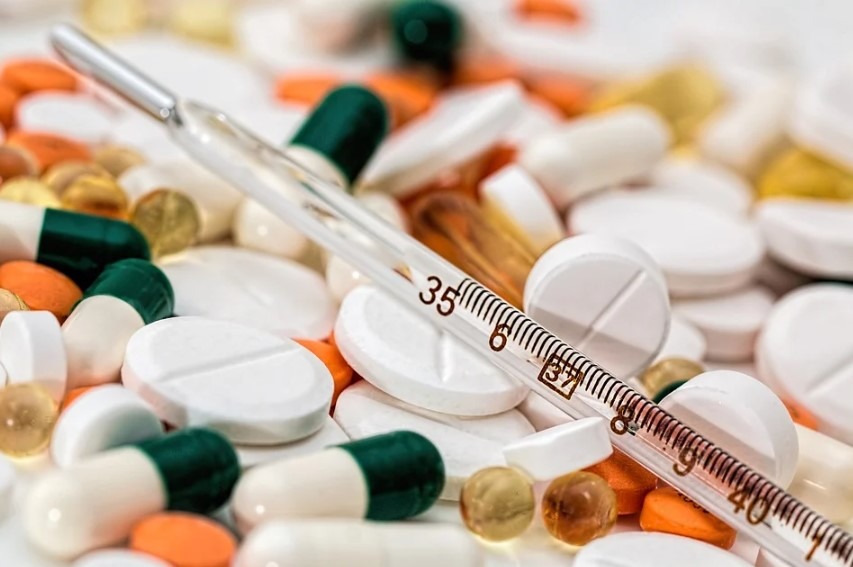Sickness is a sad life reality. Nobody wants it, but unfortunately, we must face it at some point. When children become sick, parents do everything to see their little ones recover quickly. During that period, you can easily get the temptation of trying any drug provided that it promises a positive change of your kid. However, some medications are not ideal for small children, and they might cause adverse effects or even worsen the situation.
Here is a list of the medicines that you should never give your sick kid.

Expired drugs
Expired drugs are poisonous to everyone, including adults. When a drug expires, its active ingredients become less effective and harmful. To avoid buying an expired medicine, read the date label well to know the date of the manufacturing and the expiry date. However, some medications might expire before the mentioned time. Such drugs tend to change their color appearance or even start to break down, especially if they are in tablet form. The drug might also change its taste or viscosity. When you notice that the medication is expired, return it to the pharmacist for safe disposal, or follow the FDA laws reading its safe disposal procedure. Do not put it in the trash or any other areas when pets and small children can reach easily. Also, do not flush in the toilet to avoid contaminating the underground water.

Over the counter cold and cough drugs
Children are prone to coughs and cold, but the over the counter medications are not the solution. Studies show that the medications are harmful, and they do not cause any relief to the child. Instead, they trigger adverse side effects, which include stomach upsets, sleeplessness, rashes, convulsions, and rapid heart rates. The drugs can even cause death, mainly if they are administered in larger amounts. If you notice that your child has cold and cough symptoms, seek the help of an experienced medical practitioner immediately and keep off the over the counter medications.
Drugs containing aspirin
Avoid all aspirin drugs unless your doctor has instructed you to use them. According to studies, children who take aspirin medication are more susceptible to Reye’s syndrome. Aspirin can also cause other adverse effects or worsen the condition. Before you purchase any drug, read the label carefully to ensure that aspirin is not an active ingredient. Many drug manufacturers refer to aspirin as acetylsalicylic acid or salicylate. If you are not sure of the ingredients, request your pharmacists to explain to you. Ibuprofen might not also be good for children with liver diseases, or with other underlying conditions.
Life-threatening Drugs
To be safe, keep your child away from all toxic substances, which might pose potential damages, and report any poisonous or life-threatening medication. As seen on https://www.cohenjaffe.com/defective-drug-lawyers/zantac-lawsuit/, you can easily file a case for any deadly medication containing Zantac, or any other life-threatening drug. You should, however, play your part too by ensuring that you buy your drugs from the authorized dealers only and with a professional doctor’s prescription.
One proven case that caused threat was the syrup of ipecac. Doctors advise all caregivers to keep off all the medications containing syrup of ipecac. Traditionally, doctors used to recommend this medicine to children who accidentally swallow poison. It was, however, found that the drug causes vomiting, which is very harmful to a poisoned child. In fact, ipecac syrup is no longer manufactured.
Chewable drugs
Chewable medicines are not recommended for children below the age of four years. This is because the children are still small, and they do not know how to chew thoroughly. They can easily choke on the drug tablet and cause more problems. If your child must take the tablet, confirm with your caregiver if you can crush it and add to yogurt or any other soft food. If it’s not possible, consider alternative medications.
Anti-nausea drugs
It is common for small children to show nausea symptoms, especially when they consume unknown food substances and drinks. Such symptoms are not always severe, and you should, therefore, avoid rushing to get the anti-nausea medications. In most cases, vomiting is only short-lived in children, and they can easily manage them. You should, however, not ignore vomiting, which extends for more than three days. If that happens, reach out to your doctor immediately to prevent your child from getting dehydrated. Your caregiver will most probably find an alternative solution for healing your baby.
The body system of a small baby cannot tolerate the hard drugs, and this means that you should be very selective about the types of drugs you get for your kid. Avoid the above drugs, and also avoid putting your baby on medications without the doctors’ prescriptions. Lastly, do not hesitate to report any doctor who gives you the wrong drugs or medicines for your child.
I’m a 20-something stay-at-home mother and wife. I have an amazing husband, a beautiful daughter, two loving dogs, and a lazy cat. I wouldn’t change my life for anything! I love to read, listen to music, cook and blog!

Speak Your Mind